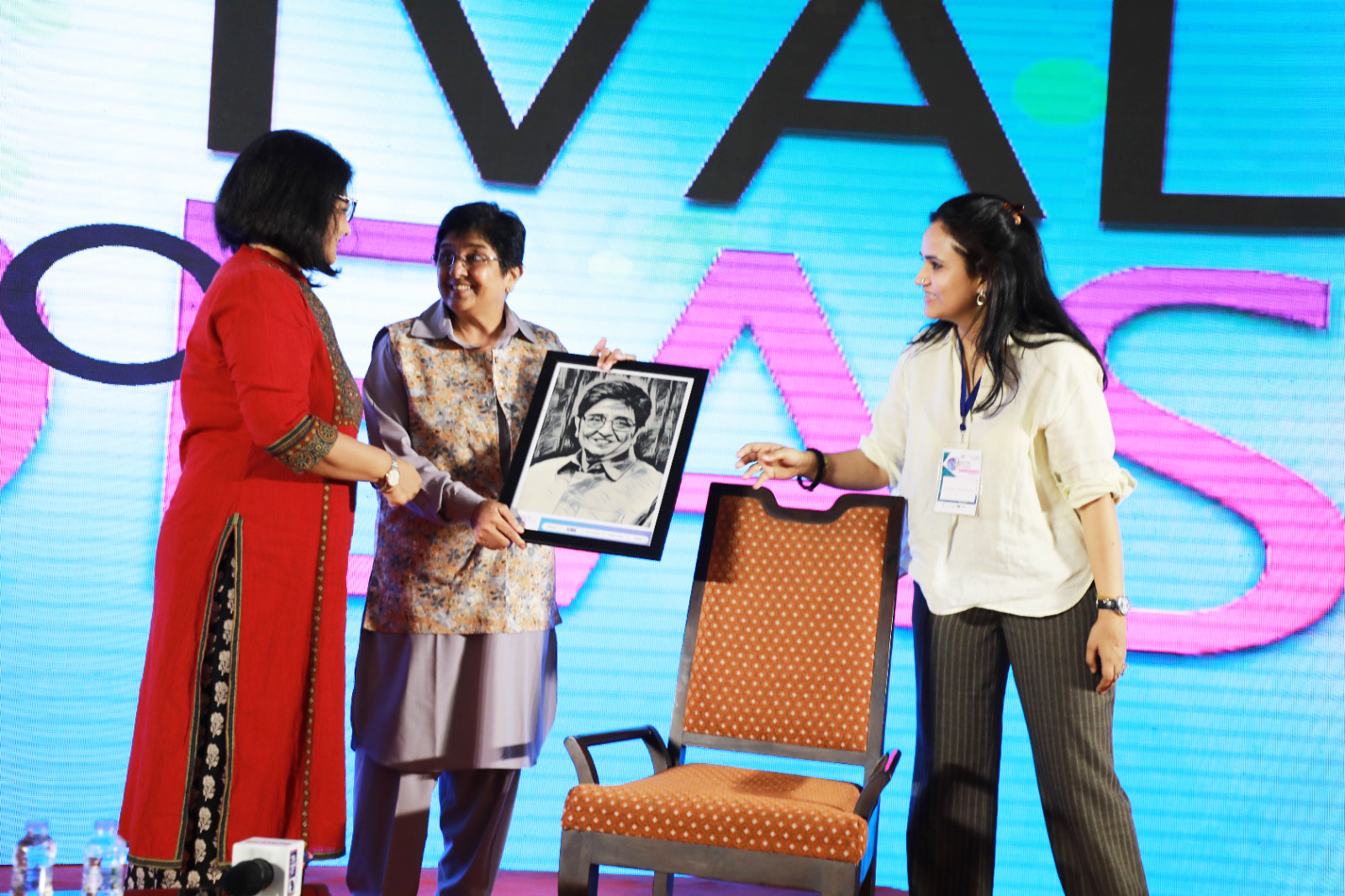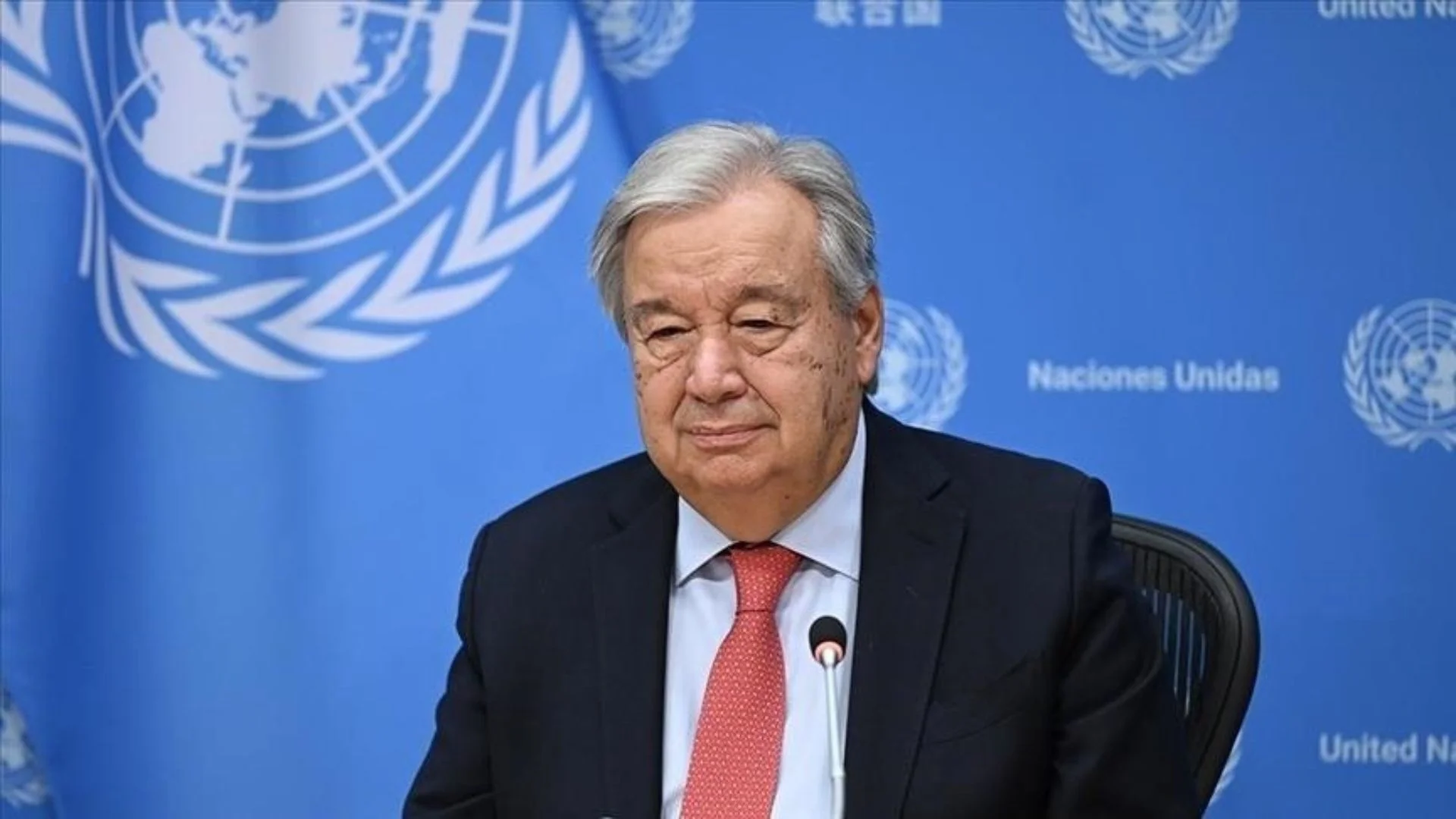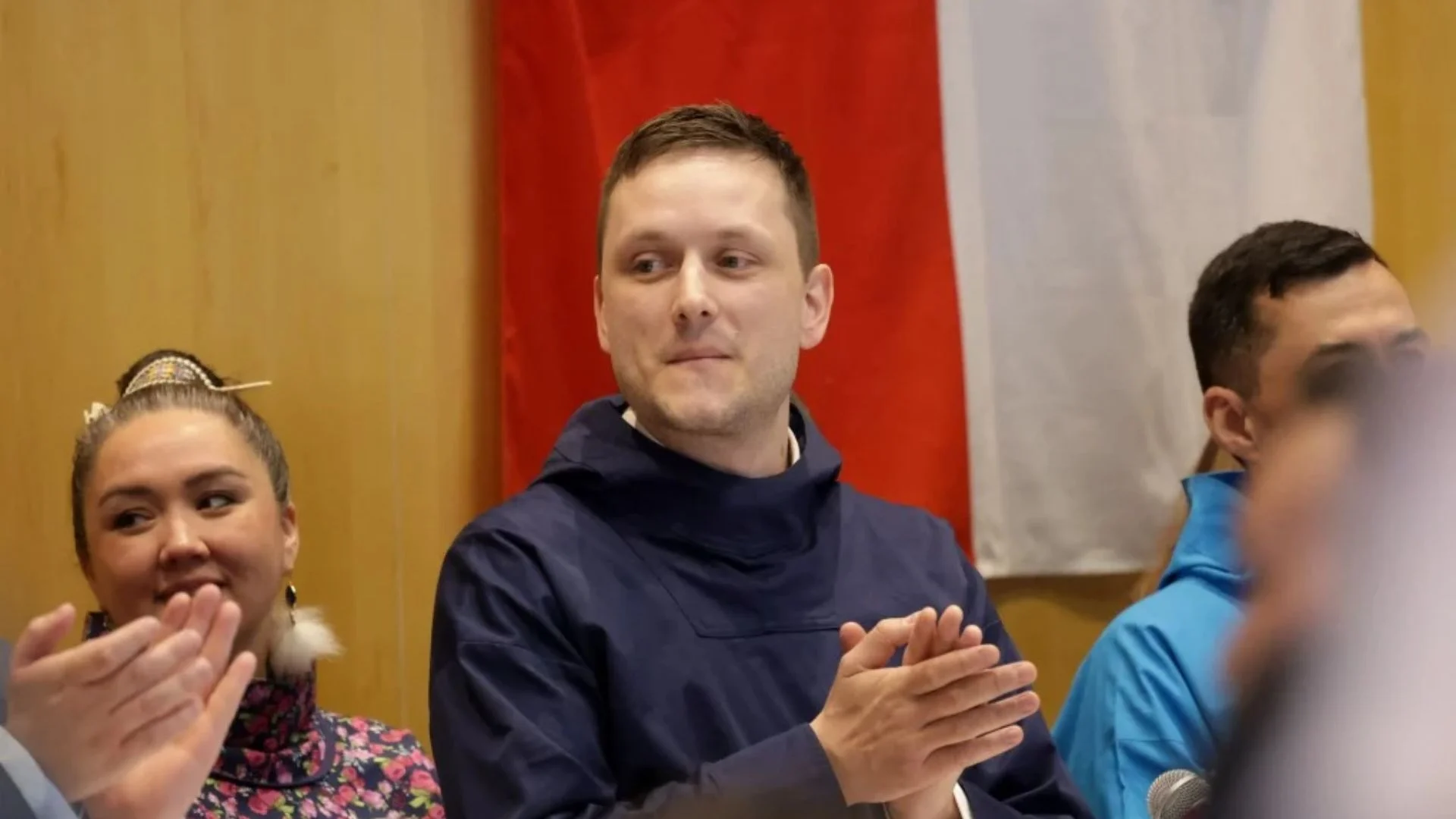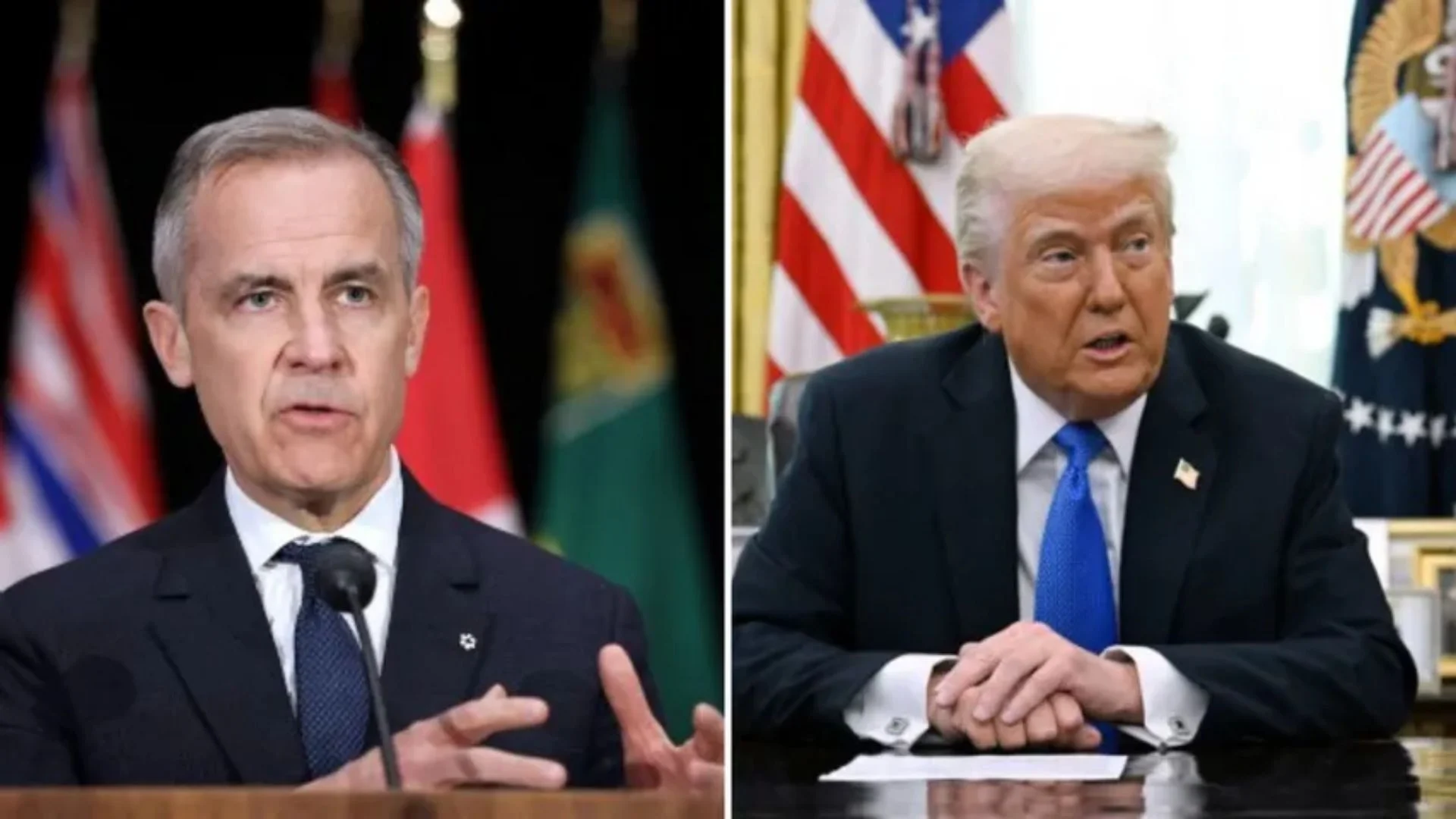The Rashtriya Swayamsevak Sangh is an organisation which has had a huge impact on India’s politics since its inception. It has been the talking point of numerous debates and discussions but also in large parts, it has been mysterious and misunderstood.
At the opening session on Day 2 of Festival of Ideas hosted by NewsX, The Sunday Guardian and India News that are parts of itv network, the Director of The Daily Guardian Aishwarya Pandit Sharma was in conversation with American academic and author of “The Brotherhood in the Saffron”, Walter K Anderson, trying to unravel the Sangh for the audience.
At the core of the RSS ideology is the Hindutva philosophy and during the conversation, Anderson also spoke about “one of the most controversial personalities in history” Veer Savarkar and his “very explicit” view of Hinduism that has had a profound influence over a huge landmass and population that stretches from Asia to Asia Pacific across several countries.
The American writer who got involved in working on the RSS in a somewhat accidental manner when he was still studying at the University of Chicago while preparing a dissertation topic on how young people get involved in politics. His advisors, Lloyd and Suzanne Rudolph, who were honoured with Padma Bhushan in 2014, one of India’s highest civilian honour, propelled young Anderson to do something on RSS.
Anderson accepts it was easier said than done “as there was so little written on the RSS up to that point”, and comparatively very little was subjective about it.
“There were books which were either all praises but much more of it was in negative criticism. And there were none which were quite good. And so I had to sort of dig deep to find out what this organization was all about,” said the writer as he tried to unravel the riddle still wrapped in a mystery for many.
“One name that kept coming up was KB Hedgewar, the founder. He was in many ways a fascinating person. He came from a family of Hindu priests. They would tell a good story in a very ethnically plural city now in Telangana where one would hear various languages spoken on the street. It was a kind of small Delhi at the heart of Central India.
A young Hedgewar got involved in politics on the inspiration of a communist politician in Maharashtra’s Central Provinces. In Calcutta, later where he studied Western medicine he also got involved in some of the revolutionary societies and became a political enthusiast.
When he got back to Nagpur, there were some communal problems in the city. As efforts were made to address the issue of independence. Hedgewar and others around him realised that the Hindu community had not done well in responding to several challenges of the time.
And what were these challenges?
Anderson said it was a problem that he and later the RSS would focus on, and that was the divisions within the Hindu community, divisions caused by the caste system.
Some of the divisions gave rise to the hierarchy that was already infused due to the caste system. There were divisions of language and economic opportunity.
Hedgewar felt the need to create a more united Hindu community. Anderson said Hedgewar felt “until that happened, you are not likely to get into a serious movement like Independence.”
It was around 1925 that it turned into a moral decision and on Bijaya Dashami Day, that the plans were put into action.
So what do you need to do to create a more united community? Savarkar was very explicit, negative on caste, and especially the caste hierarchy. He was influenced by orthodox Hebrew. And he, as also Hedgewar, had realized that it would be an enormous effort to bring changes in Hindu society.
Part of the objective of the RSS shakhas, or the local units, is to create a sense of oneness among the people who are participating by even dropping their caste names.
Even today, new recruits in RSS are vetted by everybody in the organization that is hugely policy-oriented “and more so now”.
One day at these camps, a person may be serving food, the other day, they may be polishing shoes. So the idea was that you mix responsibilities, that there is no hierarchy at work. Work is work, explained Anderson.
“When the Rudolfs talked to me about what impressed them about the RSS, it was their workers, the full-time workers. They tend to be educated young men who spend a couple of years in training, and then are promoted as interns. And then it’s judged whether they have the capability to work full-time,” said Anderson.
Hedgewar was concerned about the goal of the RSS, which was to unify Hinduism.
In his first major speech in Pune at a conference, he directly attacked the caste system.
M. S. Golwalkar, who became the leader of the RSS in 1940, being a social reformer, opened the door of the RSS for Muslims and Christians as well. And did not surprise those who knew him. He felt that these are people of India too. Golwalkar really transformed the RSS.
RSS has grown so much over the last 20 years as it now has 3.5 million members. The Sangh often misunderstood, has internal debates, discussions, it doesn’t work like a block. There’s a greater discussion that’s happening internally within the organization which many people don’t know about, Anderson added.
Asked by Dr Sharma if that played a role in the evolution of the RSS as we see it today?
Anderson said the RSS is a mediation institution. Because among all of these groups, they represent distinct interests. For example, on issues of land reform, well-being outside investment, in fact there’s no wonder we all agree with it, it’s specifically against foreign investment as it somehow undermines the Indian integrity and institutions.
The RSS has also moved out from its original social base. You have the example of the current prime minister, who was involved in the RSS at an early age, but his real effort was made to push the boundaries, the social boundaries of the RSS.
It showed that the idea of caste distinctions are not important. In fact, in any context, they should be ignored.
So, the Congress while peddling soft Hindutva and talking about the Bajrang Dal manages to win Karnataka, do you find it strange, pointed out the director.
To which Anderson said: “I don’t find it strange that they’re trying to incorporate Hindutva in their ideology, because obviously it has some popular appeal.”
So what does Hindutva do? Anderson said that while interviewing people for the books of the RSS, we would ask them about Hindutva’s meaning.
“You will be surprised to know we must have got 200 different definitions,” said the writer. And he is also curious to know what people in Congress felt Hindutva means. “For Savarkar was very explicit with what he meant. It had to do with this body of land that is South Asia, into Central Asia. And it was unifying the Indians.”
Anderson mocked the soft peddling by the Congress party and informed that particular efforts were underway by the RSS to reach out to Christians and Muslims. In fact, there is one of the affiliated groups which is specifically directed at Muslims. “And so you have to be careful how you handle this,” he cautioned the opposition.
As to what could be the reason behind the ignorance of the larger population towards RSS’ function, Anderson said the affiliated groups which are the public face need to interact more with society.
Elaborating, he said the RSS, for example, has a relationship with the largest system of private schools in India. The whole issue of education is very important today. What do you include in education as Indians are being trained for this rapid economic growth that’s taking place.”
“What RSS adds to that plate is Indian culture. They want people to not be ashamed of the Indian culture. And people in fact are proud of what we’ve achieved. And it’s not just landing on the moon but many other achievements of their past.”

















